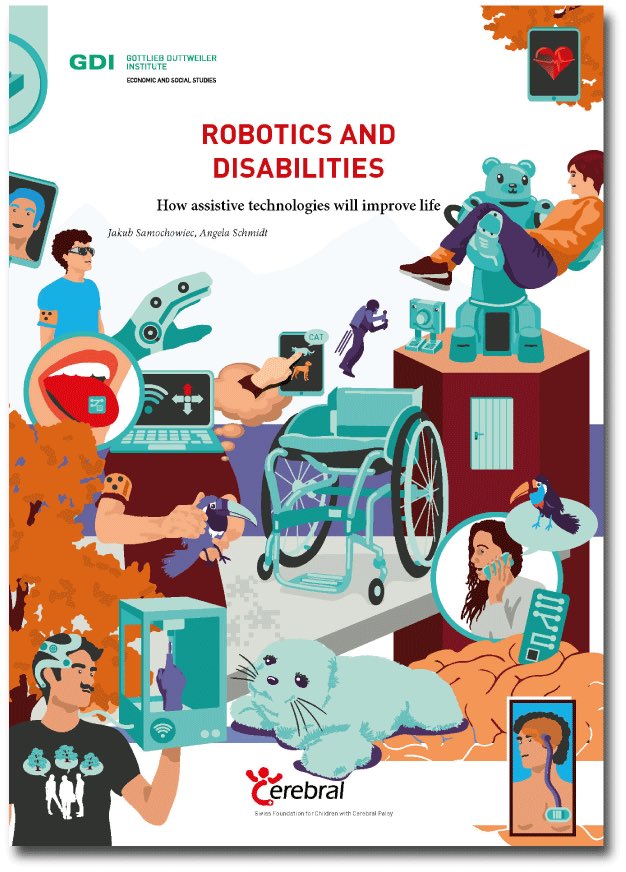Robotics and Disabilities
How machines will help people tomorrow
Authors: Jakub Samochowiec, Daniela Tenger, Angela Schmidt
Commissioned by Stiftung Cerebral
Languages: German, English
2017
Robotics and Disabilities
How machines will help people tomorrow
The imminent robotisation of our lives will also affect disabled people. Household robots, prostheses made by 3D printers and nanobots integrated into the body – all these will profoundly alter life for disabled people. Technology will play an increasingly important role – and raise new questions.
The GDI study ‘Robotics and Disabilities – How machines will help people tomorrow’ was commissioned by the Cerebral foundation. It develops new ideas about how future technologies might shape the lives of disabled people and indicates what social, technical and ethical problems arise as a result of increased use of robotics.
The study consists of three parts:
- part 1: presents an overview of current technologies which support the individual in compensating for weaknesses of a physical or psychological nature
- part 2: discusses how environmental barriers can be broken down by technology
- part 3: examines the question of how technological innovations affect social demands and expectations
By the way: Author of the study and researcher Jukub Samochowiec will also speak about robotics and disabilities in your company. For further information please contact Ingrid Schmid.
